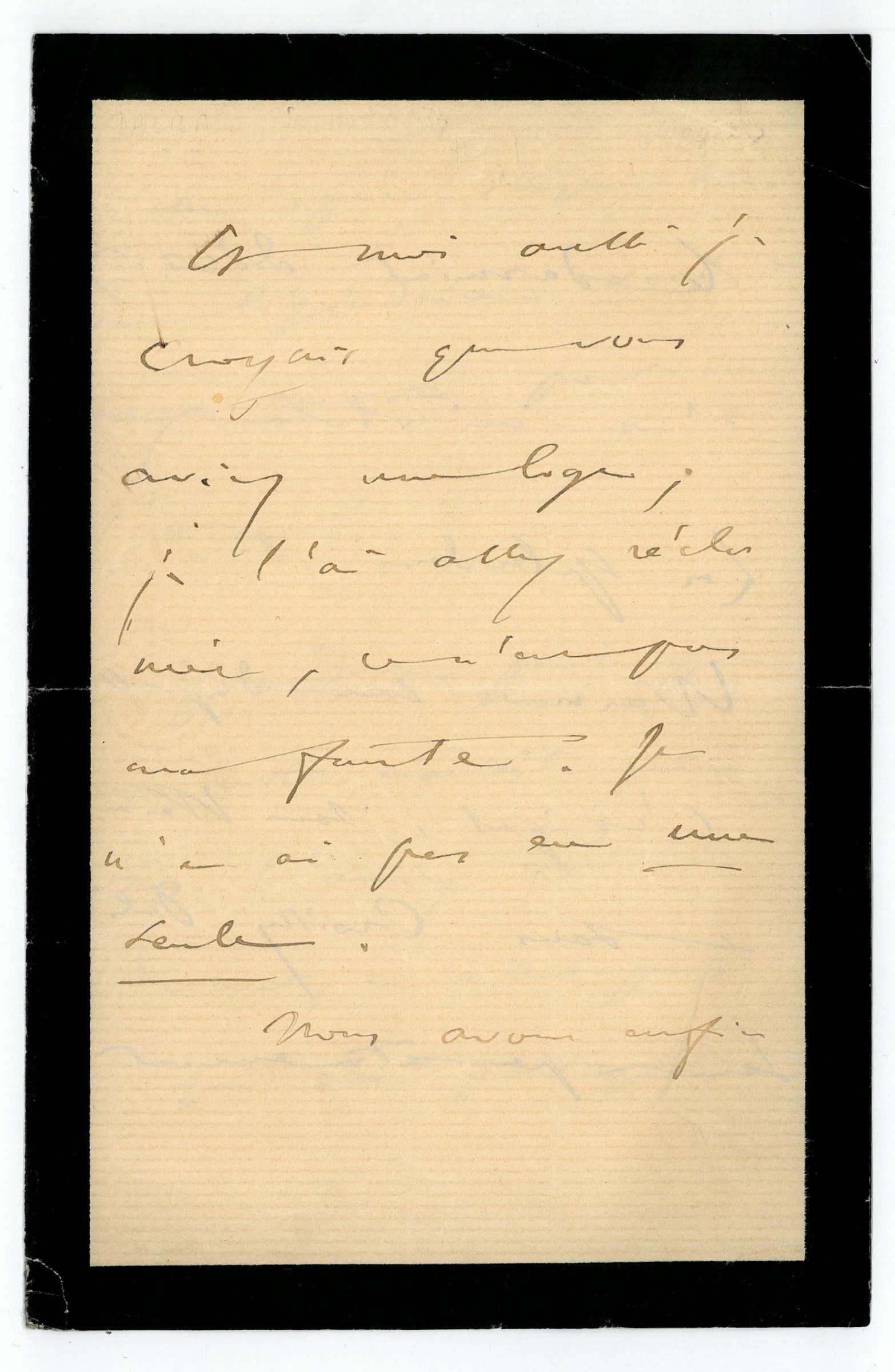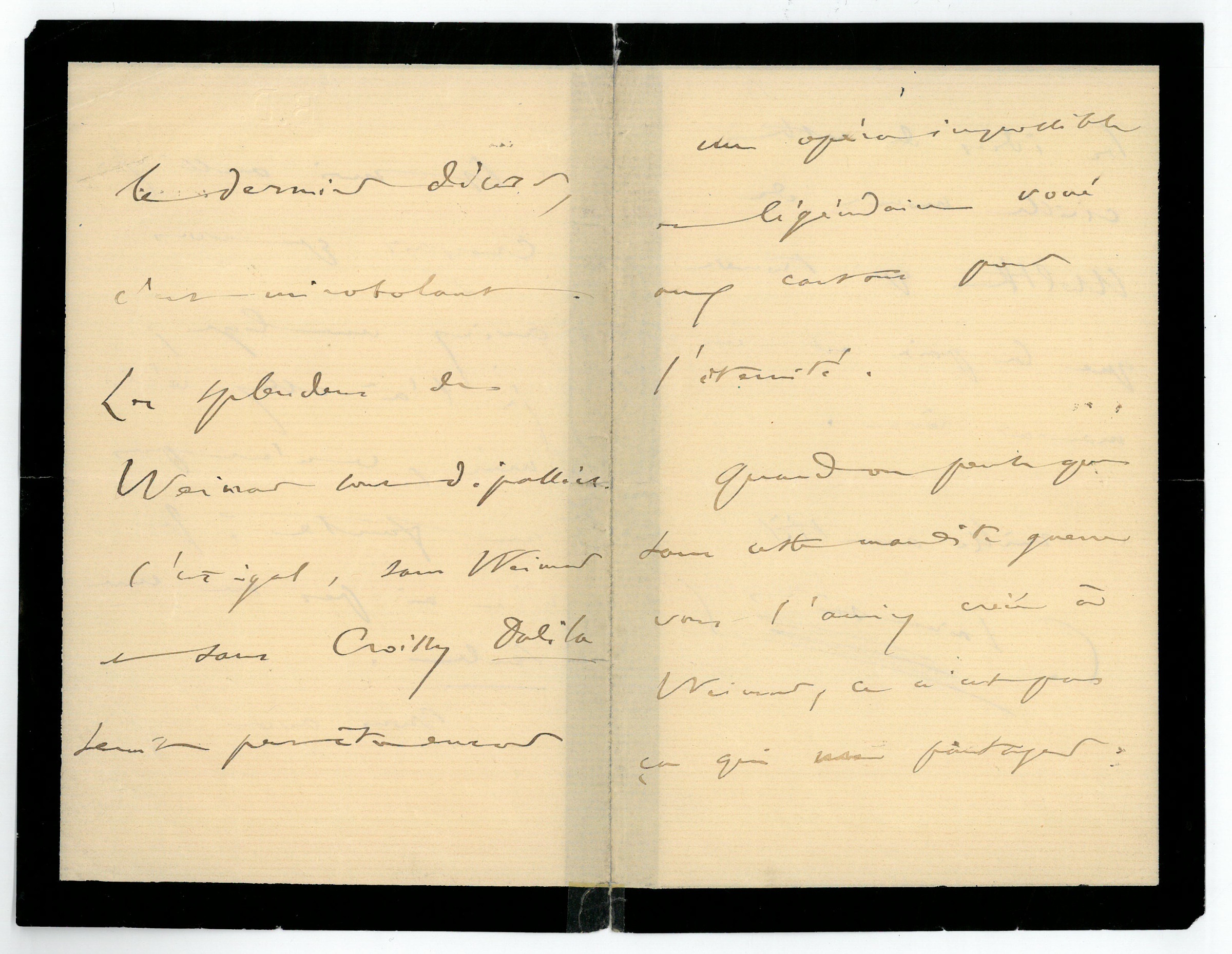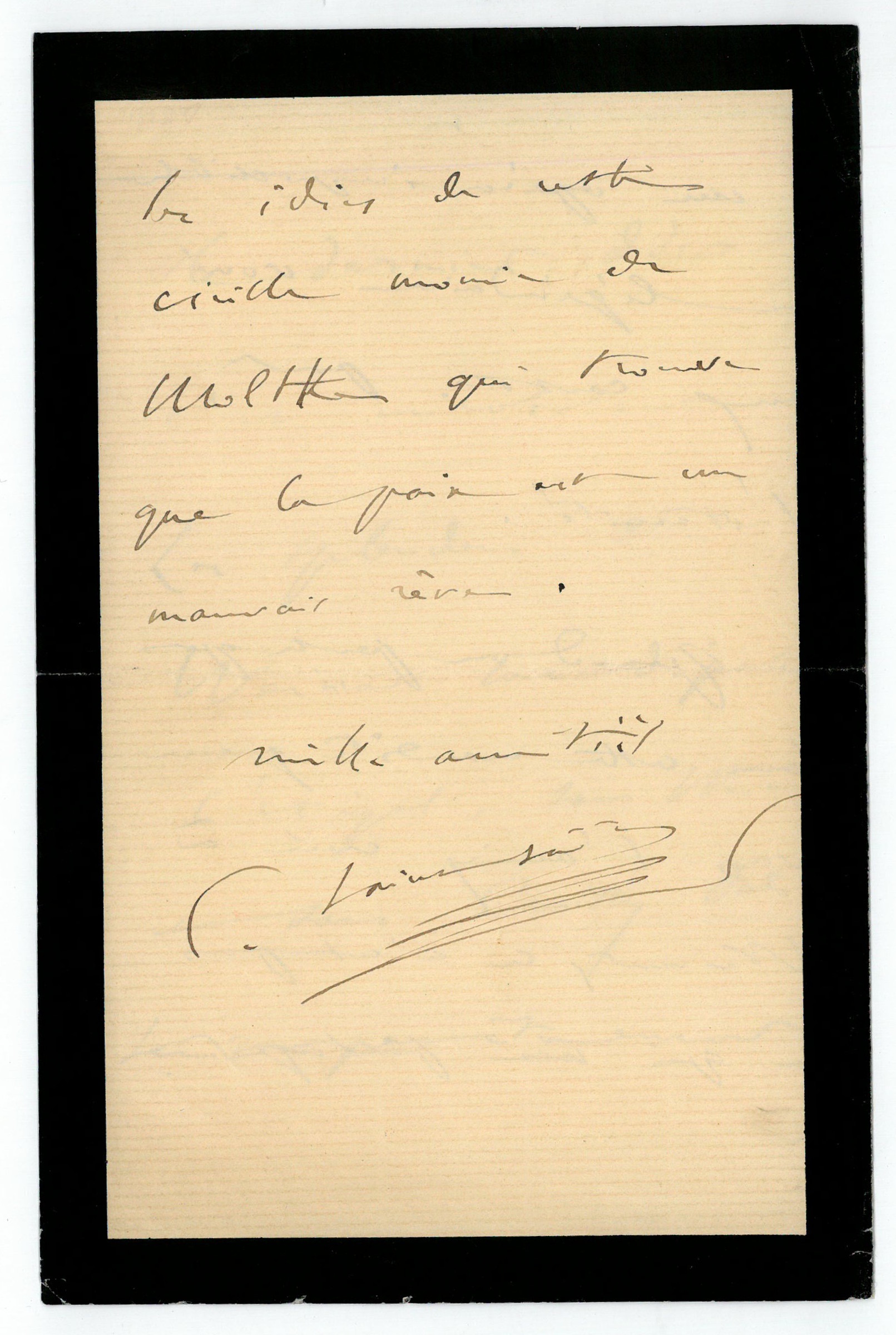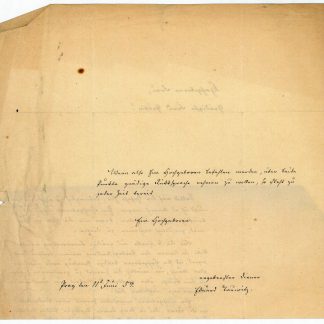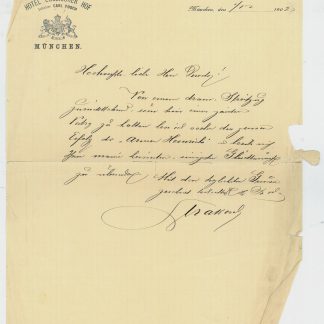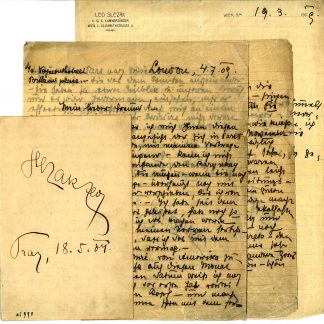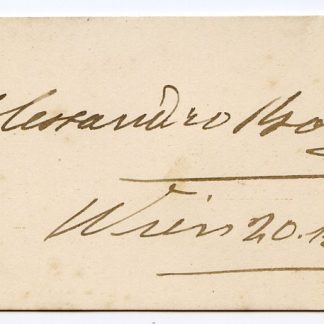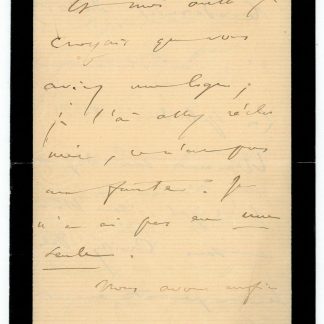"The splendors of Weimar are exceeded": Camille Saint-Saëns, Pauline Viardot, and the performance history of Samson and Delilah
Autograph letter signed.
8vo. 4 pp. on bifolium.
€ 850.00
Highly interesting letter to a close friend and collaborator, probably Pauline Viardot, written ahead of either the Rouen or, more likely, the Paris premiere of "Samson and Delilah". Saint-Saëns first apologizes because the recipient did not get a box for the premiere despite his inistence, and then announces the completion of the last parts of the scenography that exceeded "the splendors of Weimar". However, Saint-Saëns remarks that "without Weimar and without Croissy, Delilah would perhaps still be an impossible or legendary opera, doomed to the cartons for eternity", and that "without that damned war" the recipient "would have created it in Weimar". In closing, he condems cynical militarism, specifically mentioning the famous Prussian field marshal and strategist Helmuth von Moltke, lamenting that "ideas of this cruel way of Moltke who finds that peace is a bad dream" are "breaking" him.
Saint-Saëns had started composing "Samson and Delilah" in 1867, originally conceiving it as an oratory. The librettist Ferdinand Lemaire convinced him to change to the operatic form by 1868, although some of the choir scenes in the finished work are reminiscent of the original conception. From this time, Saint-Saëns envisaged the role of Delilah to be created by the mezzosoprano Pauline Viardot. When the now world-famous duet of Samson and Delilah was performed at a soirée in 1868, it was received coldly, and Saint-Saëns decided to abandon the project. Later that year, during a visit to Weimar, Franz Liszt convinced him to continue, offering a premiere at Weimar, but the Franco-Prussian War of 1870/71 forced the composer to halt the project yet again. After an inspiring visit to Algeria in 1874, Saint-Saëns decided to finish "Samson and Delilah" after all, and already in August of that year, the second act was performed in concert at Croissy near Paris, with the composer at the piano. The reception of the composition in France remained indifferent, and Saint-Saëns decided to have the premiere in Weimar after all in January 1876. At this point, Pauline Viardot considered herself too old to create the role of Delilah and ceded it to Auguste von Müller. Despite the success of the Weimar premiere, another 14 years would pass until the first premiere of the opera in France, at the Théâtre des Arts in Rouen on 3 March 1890. Finally, on 31 October 1892, the Paris premiere at the Théâtre Lyrique de l’Eden followed. Already in November of that year, the Paris Opera premiered "Samson and Delilah", and the opera found its lasting place in the repertoires of the world's leading houses.
In view of this history, it is most likely that Camille Saint-Saëns wrote the letter at hand to Pauline Viardot ahead of the Paris premiere of "Samson and Delilah".
On stationery with blindstamped monogram "B. D." and mourning border. Minor tears and traces of former restoration.

